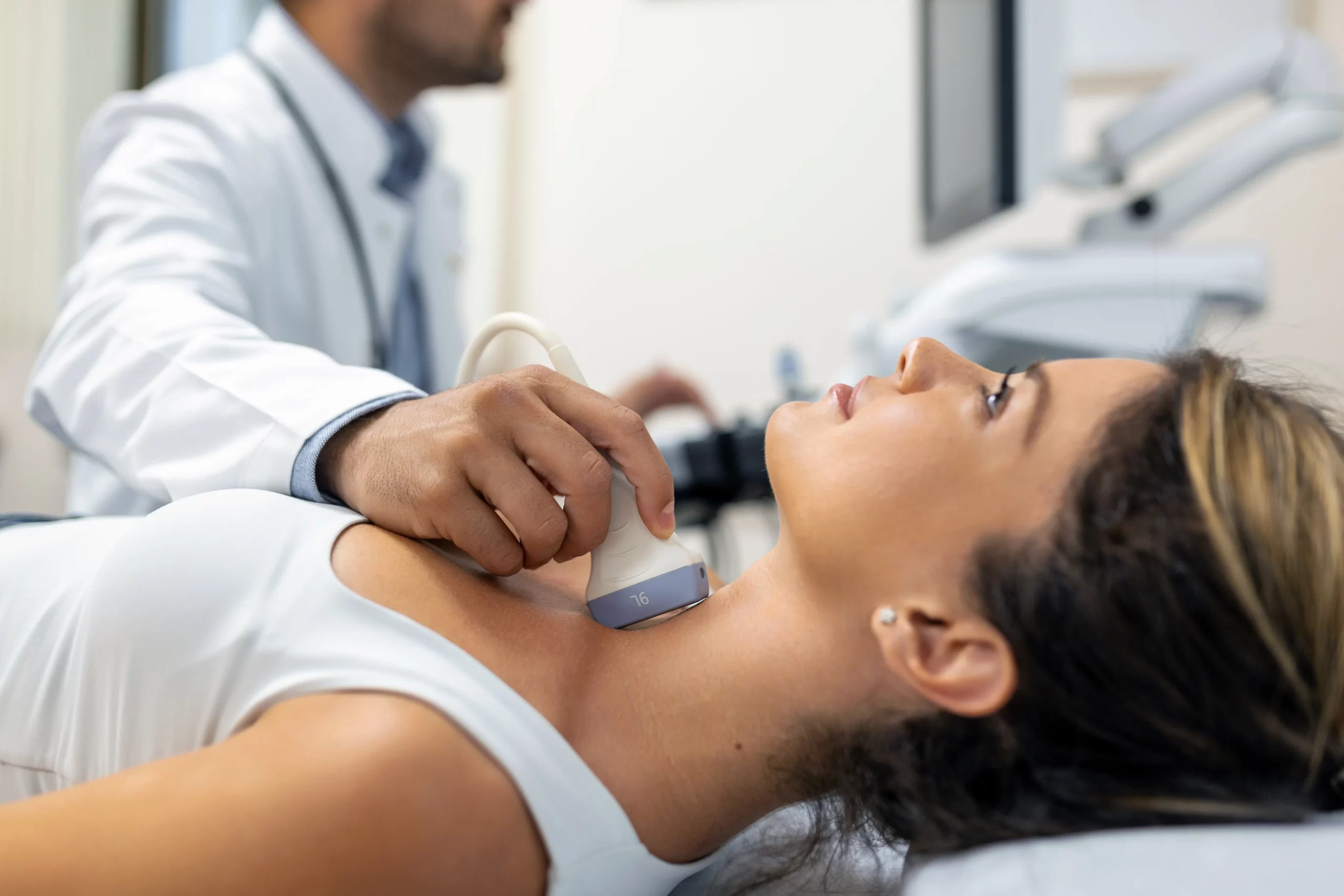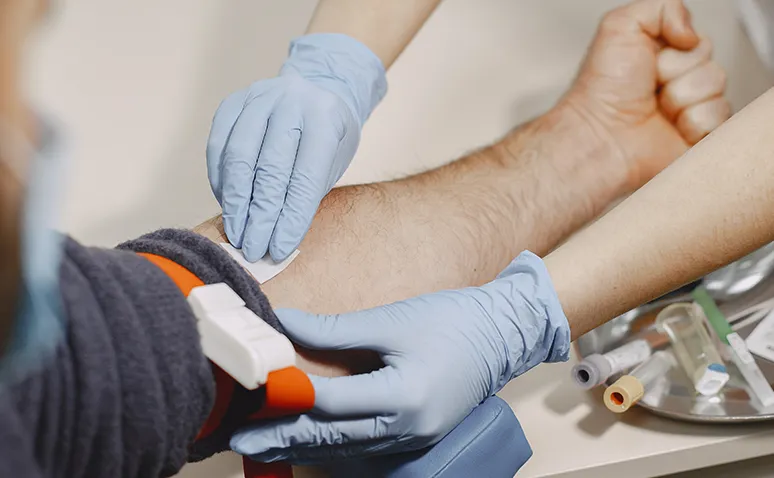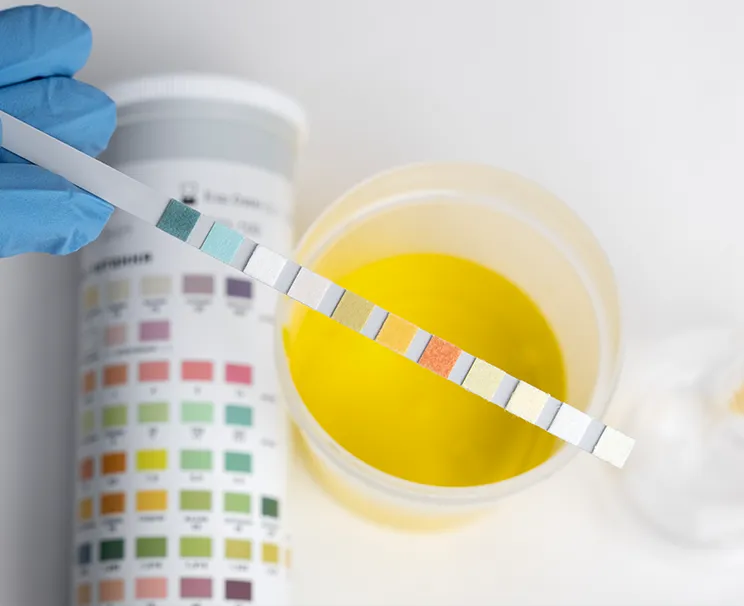Microbiology laboratory is a vital research center where microorganisms are studied, identified, and analyzed. In these laboratories, work is conducted on microorganisms such as bacteria, viruses, fungi, and parasites. Microbiology plays a crucial role in various fields, including medicine, food safety, biotechnology, and environmental science.
Microbiology laboratory holds a critical role in maintaining health and preventing diseases. Particularly as part of infection control programs in hospitals, patient samples are analyzed in these laboratories to identify causative pathogens. Through microbial analyses, information is gathered on microorganisms that pose a threat to public health, helping prevent the spread of infectious diseases.
The types of work conducted in these laboratories include:
- Microorganism Identification: Identifying and classifying microorganisms such as bacteria, viruses, fungi, and parasites.
- Antibiotic Susceptibility Testing: Determining which antibiotics microorganisms are sensitive or resistant to.
- Pathogen Detection: Isolating and identifying pathogens from patient samples that cause infections.
- Pathogenic Microorganism Analysis: Detecting and analyzing harmful microorganisms in food, water, and environmental samples.
- Vaccine and Drug Development: Conducting studies on microorganisms as part of the development of new vaccines and medications.
- Genetics and Molecular Biology Research: Examining the genetic structure of microorganisms for genetic modifications and molecular biology studies.
- Microbial Biotechnology Studies: Utilizing microorganisms in biotechnological processes, such as fermentation or biological treatment.
- Epidemiological Research: Investigating transmission pathways of microorganisms and collecting data to combat infectious disease outbreaks.
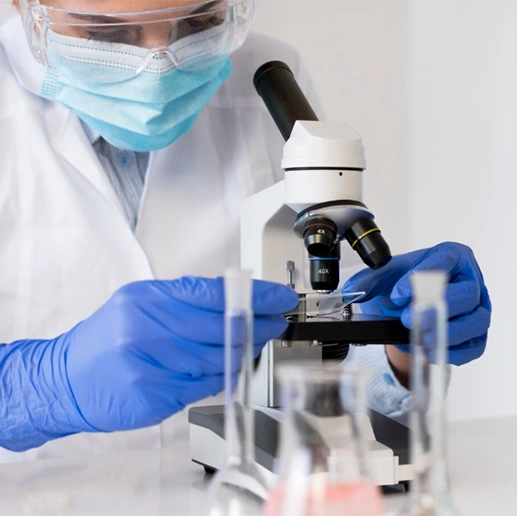
What is a Microbiology Laboratory?
A microbiology laboratory is a scientific research environment where microorganisms are thoroughly studied, identified, and analyzed. In these laboratories, the structure, replication processes, and disease-causing properties of microorganisms such as bacteria, viruses, fungi, and parasites are investigated.
Microbiology laboratories play a crucial role in diagnosing infections, especially in the healthcare field. Located in hospitals and research centers, these laboratories conduct various microbiological tests to help identify the causative agents of diseases.
Among the studies conducted in these laboratories are microorganism isolation, antibiotic susceptibility testing, and rapid diagnostic tests. These tests are critical for preventing the spread of infectious diseases and for safeguarding public health, representing some of the laboratory’s most essential functions. Accurate identification of infectious agents plays a significant role in selecting appropriate treatment methods.
For instance, antibiotic susceptibility tests for bacterial infections help determine which antibiotics are effective against the bacteria causing the disease. This prevents unnecessary antibiotic use and makes treatments more effective.
Microbiology laboratories also operate in the fields of biotechnology, environmental health, and food safety. In particular, detailed biochemical analyses are conducted to ensure the quality of microorganisms used in biotechnological production.
Working in collaboration with the biochemistry laboratory, microbiology laboratories analyze the biochemical properties of microorganisms to ensure the safety of biological products. These analyses are utilized to confirm that products in the food and pharmaceutical industries do not contain harmful microorganisms.
These laboratories contribute significantly to public health protection, infectious disease prevention, and the safety of biotechnological products. The detailed tests and analyses conducted in microbiology laboratories provide substantial benefits for public health and environmental safety. Microbiology laboratories are an indispensable part of the healthcare sector, both in diagnostics and research.
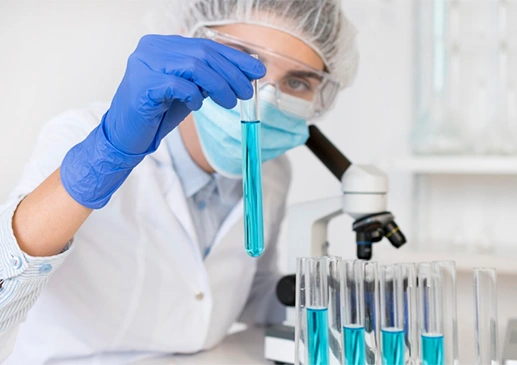
What Does a Microbiology Laboratory Examine?
A microbiology laboratory examines the structure, replication processes, and effects on the environment and human health of microorganisms such as bacteria, viruses, fungi, and parasites. In these laboratories, the biological characteristics of microorganisms are investigated in detail, and pathogenic species are identified.
The primary goal of microbiology laboratories is to detect disease-causing microorganisms to support public health. They also contribute significantly to areas such as environmental health, food safety, and the development of biotechnological products.
What Tests are Performed in a Microbiology Laboratory?
Many tests and analyses are conducted in a microbiology laboratory. Among the most common are microorganism isolation, antibiotic susceptibility tests, rapid diagnostic tests, and microbial culture tests.
These tests, which are used for infection diagnosis, help identify the microorganisms causing diseases and facilitate the development of appropriate treatment methods. Additionally, screening tests are conducted in hospitals to prevent the spread of infectious diseases. These tests hold significant value not only in healthcare but also in environmental analyses and biotechnological studies.
What are Microbiological Analyses?
Microbiological analyses involve examining the structural, genetic, and biochemical properties of microorganisms. These analyses include identifying pathogenic microorganisms, performing antigen and antibody tests, and conducting molecular biology tests like PCR (polymerase chain reaction). Additionally, analyses conducted in the food and environmental sectors are also part of microbiological investigations.
Microbiological analyses are applied in various fields, such as detecting harmful microorganisms in food or researching pathogens in environmental samples. These analyses are crucial for protecting human health and ensuring hygiene standards.

